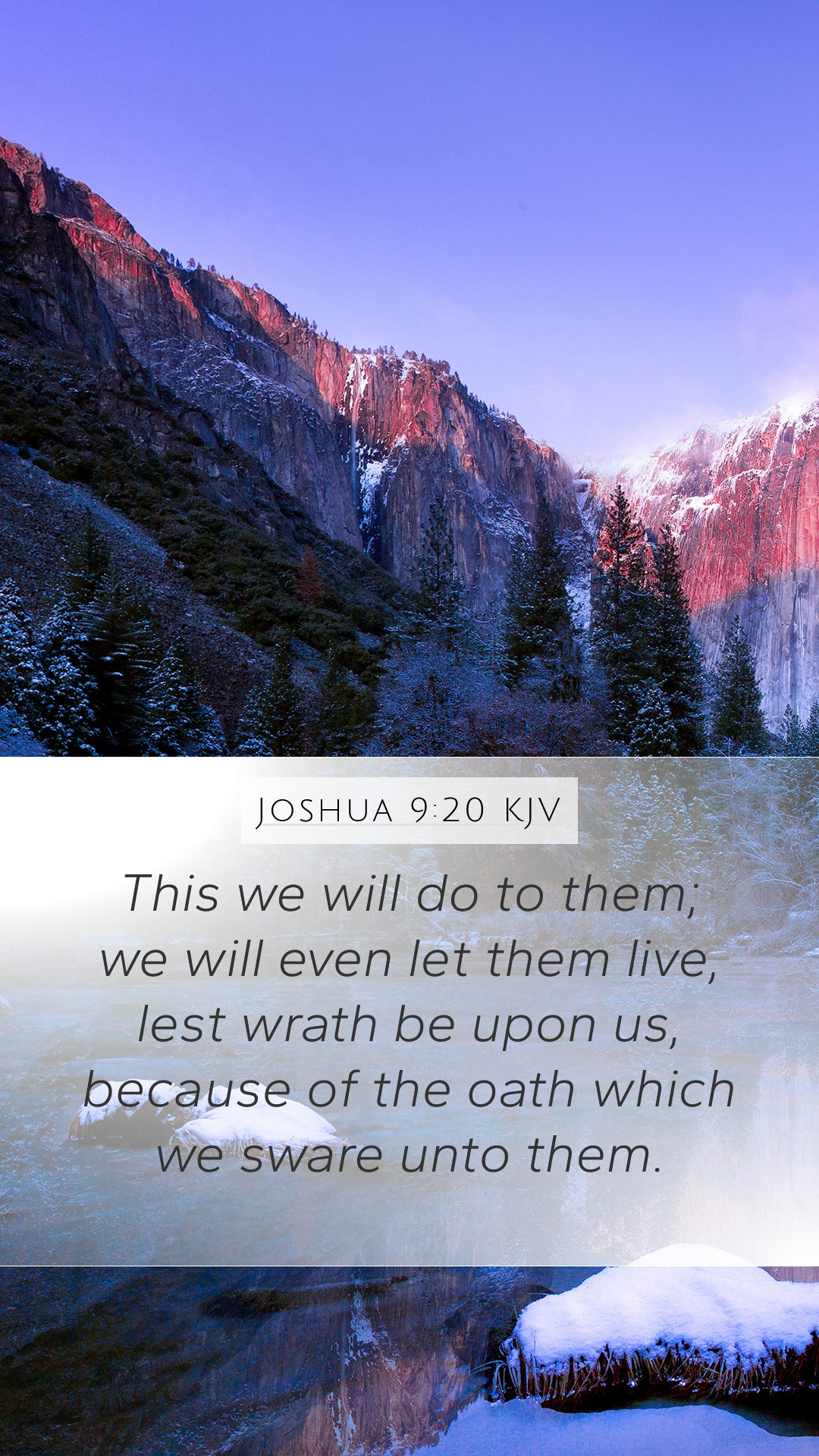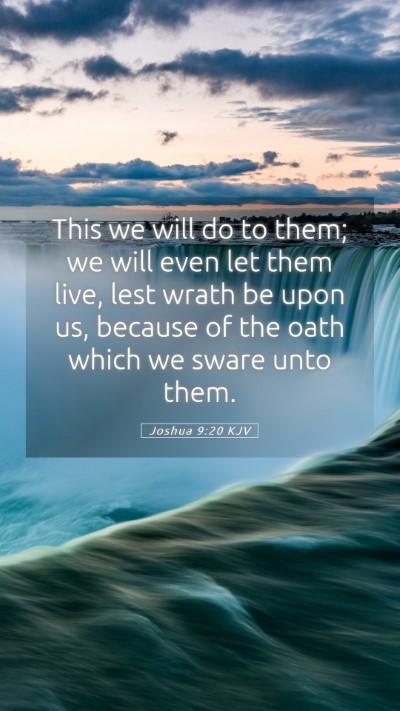Understanding Joshua 9:20 - Bible Verse Commentary
The verse Joshua 9:20 states: "This we will do to them; we will let them live, lest wrath be upon us, because of the oath which we swore to them." This passage is rich in meaning and provides profound insights concerning promises, loyalty, and divine justice. The various public domain commentaries shed light on its implications from different perspectives.
Summary of Insights
This section details a synthesis of insights from notable commentators, including Matthew Henry, Albert Barnes, and Adam Clarke, to help in understanding this scripture thoroughly.
Contextual Background
The narrative of Joshua 9 occurs during the Israelite conquest of Canaan. The Gibeonites, fearing the Israelites, deceived them into making a treaty. Once the truth was revealed, the Israelites were faced with a moral dilemma regarding their commitment to uphold their oath.
Commentary Insights
-
Matthew Henry:
Henry emphasizes the importance of keeping one's word, stating that even when a commitment is made under deception, it remains binding. This verse illustrates the gravity of vows and the fear of divine wrath that can result from breaking a covenant.
-
Albert Barnes:
Barnes draws attention to the Israelites' dilemma. He explains that their decision to spare the lives of the Gibeonites reflects their desire to honor God’s name and their own integrity, showing the significance of treating others with mercy, even when deceived.
-
Adam Clarke:
Clarke expands the discussion by noting the practice of making covenants in ancient Israel, emphasizing that God's law required fidelity to oaths. This verse serves to highlight the serious nature of commitments made, reaffirming the value placed on one's word.
Bible Verse Meanings
Joshua 9:20 encapsulates the essence of biblical fidelity and ethical responsibility. It conveys:
- The Weight of Oaths: This verse underscores that oaths made before God must be fulfilled, indicating the seriousness of promises in a believer's life.
- Divine Justice: There is an implied understanding that neglecting oaths can bring about God's wrath, reinforcing the notion of divine oversight in human affairs.
- Mercy and Justice Balance: The Israelites' choice to spare the Gibeonites speaks to the notion of mercy overcoming vengeance, illustrating compassion amid complex moral circumstances.
Practical Application
Understanding Joshua 9:20 challenges believers today to reflect on their commitments:
- Integrity in Promises: Encourage a practice of accountability in relationships. One’s word ought to carry weight, promoting trust and reliability.
- Ethical Considerations: Address moral dilemmas with a focus on divine principles. Seek wisdom in maintaining integrity while also extending mercy).
- Engagement with Scripture: Utilize this scripture as a teaching moment regarding the seriousness of vows and the power of mercy in the Christian faith.
Cross References
Several other scriptures relate to the themes found in Joshua 9:20:
- Exodus 20:7 - "You shall not take the name of the LORD your God in vain."
- Numbers 30:2 - "If a man makes a vow to the LORD..."
- Ecclesiastes 5:4-5 - "When you make a vow to God, do not delay to pay it..."
Conclusion
In summary, Joshua 9:20 offers profound insights into the nature of oaths, mercy, and divine justice. By examining this verse through the lenses of respected commentaries, believers can gain a deeper understanding of the moral and spiritual implications involved in their commitments.
For those engaged in Bible study groups or online Bible study, this passage serves as a pivotal point for discussion on ethics, promises, and the character of God as it relates to human conduct. Utilize these insights as valuable Bible study resources and Bible study tools to further enhance your understanding of Scripture.
For further exploration, consider how to apply this interpretation in your daily life and what it means for your commitments.


